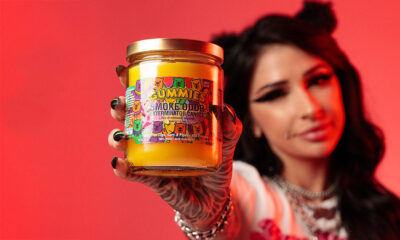
Medical
Can Cannabis Treat Autism?
Studies continually show great potential for cannabis as an effective treatment for autism. Determining the right dose, however, is proving difficult.
Fewer and fewer places in the US remain where it’s still a criminal act for adults 21 and older to use cannabis. Even fewer places deny sick Americans (with the right sickness to qualify them as medical marijuana patients) some accommodation to use cannabis lawfully. But even these 14 cannabis legalization holdouts agree that it’s OK to give marijuana extracts to kids, as long as those kids have been diagnosed with an autism spectrum disorder. And with good reason. Miraculous stories are all over the internet, such as children speaking their first words after using cannabis oil, or autistic adults with severe anxiety and near-total social isolation rejoining society after smoking cannabis. So, this begs the question, “Can cannabis ‘treat’ autism?”
A definitive final answer is elusive. However, as a review authored by researchers led by Mariana Babayeva, a professor at the Touro College of Pharmacy in New York and recently published in the scientific journal Frontiers in Bioscience found, a growing number of “clinical studies have shown promising results of cannabis treatment in” autism spectrum disorder (ASD).
How Cannabis Helps Autism
This makes practical and scientific sense. CBD and THC activate the network of receptors called the endocannabinoid system. “Due to its vital role in regulating emotion and social behaviors, the endocannabinoid system represents a potential target for the development of a novel autism therapy,” the study states.
Cannabis does help autism, as this latest review, prior studies and loads of compelling, convincing anecdotal stories say. But what cannabis treatment would work best for each individual case of autism, and how much cannabis should be given in those instances?
“It’s too early for anyone to recommend cannabis as a validated, well-studied type of a substance,” said Dr. Nathan Call, director of clinical operations at the Marcus Autism Center in North Druid Hills, Georgia, in a recent interview.
That’s the final word on cannabis and autism that’s yet to be spelled out. In the meantime, autism and cannabis suffer from the same knowledge gaps plaguing the rest of cannabis-based medicine.
Defined by the Centers for Disease Control and Prevention as “a developmental disability caused by differences in the brain,” autism has several known risk factors, but lacks a clearly identifiable cause. Treatments generally involve the off-label use of pharmaceutical drugs as a last and final desperate intervention to prevent behavior dangerous to the person or to others, as well as careful education—and plenty of coping skills.
However, as the authors of the Frontiers in Bioscience review noted, “several studies have suggested that dysfunctions in the components of the endocannabinoid system may contribute to the behavioral deficits and neuroinflammation observed in autism.”
Other studies have associated autism with problems with the body’s immune system. And there are endocannabinoid receptors found in immune cells that could “control the movement of inflammatory cells,” meaning if the receptors can be given the right amount of cannabis to generate the right response, that, too, might soothe the symptoms sufficiently to allow the sufferer to enjoy something closer to a “normal” life.
Given the knowledge gaps, studies investigating cannabis’ potential in treating autism have, by necessity, taken a shotgun approach, trying concoctions with low THC, no THC, high THC or ratios of CBD to THC including 20:1.
The 20:1 concoction, hit on by researchers in Israel, seemed to consistently present good results for most participants, with self-injury and rage improving in 67.6% of children in one 53-person study—but worsening in 8.8% of participants. And using cannabis in children is, of course, particularly delicate work.
What We Know, What We Don’t
But despite knowing this much, we still don’t know enough. As Babayeva and her co-authors stated, “there are very limited clinical data on the impact of cannabis on autism”—which, like cannabis, has many different phenotypes. And what works for someone with behavioral outbursts might not work for someone with severe anxiety.
“While cannabis might be beneficial in persons with one phenotype, it may have no effect or severe adverse outcomes in persons with other phenotypes,” the researchers wrote in their review.
Simply put, there isn’t enough data yet on specific cannabis concoctions for specific phenotypes of autism, leading parents and practitioners to grope around in the dark, hoping to stumble onto the winning formula.
“More clinical investigations are needed to discover the efficacy, safety and dosing of the therapy,” the report states. “This would be a significant advance in the treatment of autism and could lead to improved functioning and quality of life for the patients and their families.”
Cannabis and Autism: The Final Word, For Now
Dale Jackson lives in Georgia, one of the states where adults can’t use cannabis without risking arrest, but where children with autism—like Jackson’s nine-year-old son Colin—are supposed to be able to access the drug. Without cannabis oil, Colin engages in the kind of self-harm associated with an autism spectrum disorder. Jackson wakes up at night hearing a thumping sound from his child’s room: the sound of Colin knocking his own head against the bedroom wall.
Cannabis has helped, but the problem, as Jackson said recently, is that Georgia’s nice-sounding law is unworkable. There’s “nowhere to buy it in Georgia,” Jackson recently told WALB, which means Jackson must resort to illicit means: underground medicine-makers in Georgia, or legally obtaining cannabis oil in other states and then illegally transporting it across state lines.
These are reasonable acts for a desperate parent with a child in distress, but both are unlawful.
“When you’re a caregiver of a child who’s hurting you every day or hurting themselves every day, you’re willing to try a lot of things to try to make your life a little bit better,” Dr. Call told The Atlanta Jewish Times.
At the present time, seven studies investigating cannabis in autism are in various stages of completion at universities across the US and Israel. Once the new data is presented, more, larger and longer-term studies will be required to present a definitive answer on how much CBD or THC is needed for the exact autism spectrum disorder. Until then, the final word on cannabis and autism is that it seems to help—it may even be a miracle cure. But finding the right mix is a shot in the dark.

























